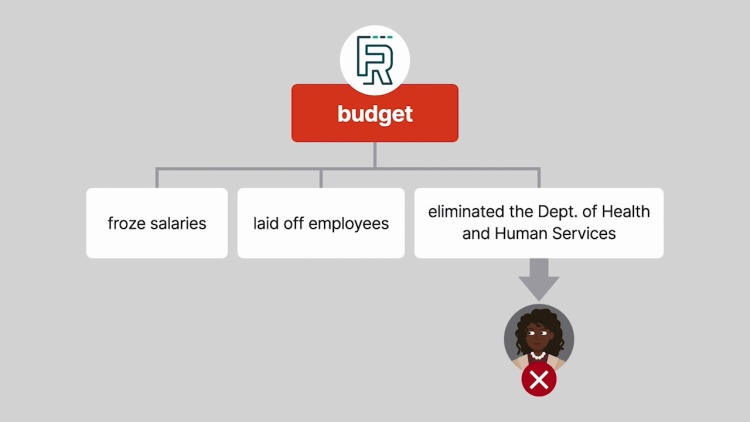Bogan v. Scott-Harris
United States Supreme Court
523 U.S. 44 (1998)
- Written by Whitney Kamerzel , JD
Facts
Janet Scott-Harris (plaintiff) was the sole permanent employee of the Department of Health and Human Services (DHHS) for Fall River, Massachusetts (the City) (defendant). Scott-Harris initiated the termination of Dorothy Biltcliffe, a temporary DHHS employee, because Biltcliffe allegedly made racial and ethnic slurs about colleagues. Biltcliffe, however, used her political connections to convince Marilyn Roderick (defendant), the vice president of the city council, and Daniel Bogan (defendant), the mayor, to reduce Biltcliffe’s punishment. Mayor Bogan subsequently signed an ordinance eliminating Scott-Harris’s position in response to anticipated state budget cuts, and the city council, with Roderick’s vote, adopted the ordinance. Scott-Harris sued Mayor Bogan, Roderick, and the City in federal district court under 42 U.S.C. § 1983, alleging the elimination of Scott-Harris’s position was due to racial animus and in retaliation for punishing Biltcliffe. Mayor Bogan and Roderick filed a motion to dismiss based on their absolute legislative immunity. The district court dismissed this motion, holding that the jury’s finding that an unconstitutional intent motivated the ordinance separated the ordinance from legislative actions that typically enjoy legislative immunity. The court of appeals set aside the verdict against the City, but it affirmed the judgments against Mayor Bogan and Roderick. The United States Supreme Court granted certiorari.
Rule of Law
Issue
Holding and Reasoning (Thomas, J.)
What to do next…
Here's why 911,000 law students have relied on our case briefs:
- Written by law professors and practitioners, not other law students. 47,100 briefs, keyed to 997 casebooks. Top-notch customer support.
- The right amount of information, includes the facts, issues, rule of law, holding and reasoning, and any concurrences and dissents.
- Access in your classes, works on your mobile and tablet. Massive library of related video lessons and high quality multiple-choice questions.
- Easy to use, uniform format for every case brief. Written in plain English, not in legalese. Our briefs summarize and simplify; they don’t just repeat the court’s language.





